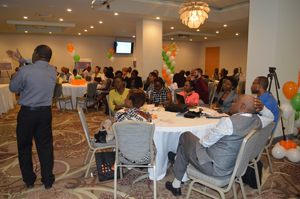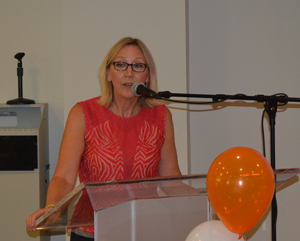
Port-au-Prince, April 20, 2016 --- The Ministry of Public Health and Population and UNFPA, the United Nations Population Fund, organized in conjunction with several other partner organizations, a panel discussion on promoting the use of long term family planning methods, in Pétion-Ville, east of Port-au-Prince, on April 19, 2016.

This activity aimed to contribute to the widespread use of long-term methods, through the most appropriate strategies to Haiti.
"We are here to see how to strengthen the use of long-term methods, namely the IUD and implants," said the Head of the Family Health Directorate (DSF) at the Ministry of Health, Dr. Reynold Grand'Pierre.
For her part, the UNFPA Representative for Haiti, Ms. Marielle Sander, emphasized the need to train women of childbearing age and to enhance their access to long-term methods.
In Haiti, despite the very high level of knowledge of modern contraception (99%), the prevalence remains relatively low among married women: 31% in 2012 against 22% in 2000 and 13% in 1994-1995. These data, coupled to the gap between actual fertility (3.5 children per woman) and desired fertility (2.2) illustrate very clearly unmet needs for family planning in particular. Indeed, unmet needs amount to 38%.

The right to decide freely and responsibly the number and spacing of their children and when to have them is a basic human right for all people and all couples. The long term contraceptive methods appear, from this perspective, practical and effective methods against the risk of a pregnancy.
Since 2009, UNFPA, partner of the Ministry of Health, provides 60% of supplies of modern contraceptives and plays an active advocacy role in improving family planning in Haiti. UNFPA is also supporting the Ministry to implement the offer of at least four family planning methods in all institutions, to improve the managing system for stocks of reproductive health commodities, and facilitate the education of the population, especially the youth, on family planning methods.

